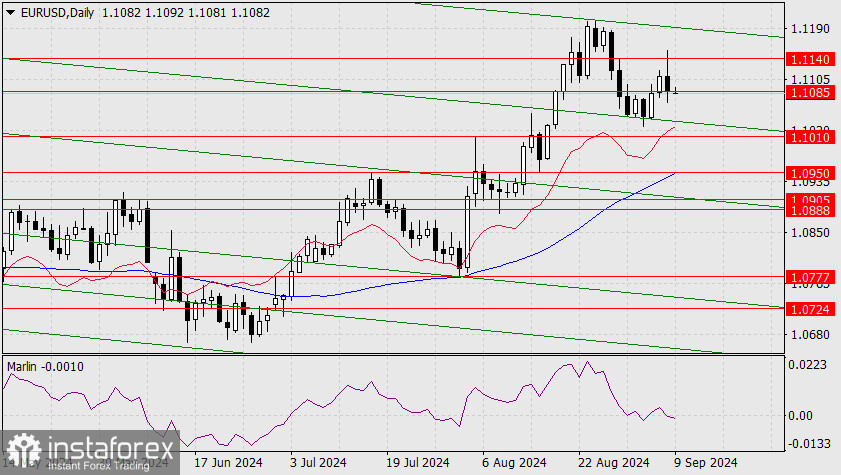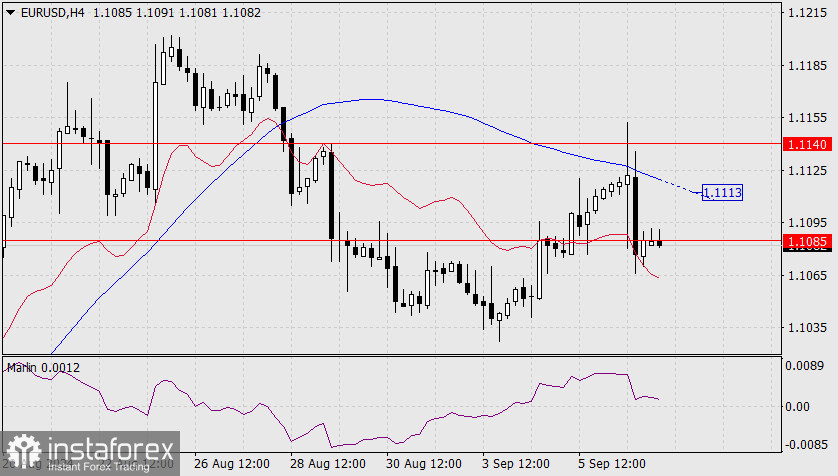The currency market's reaction to Friday's US employment data was surprisingly muted – the dollar index changed by 0.07%, gold dropped by 0.73%, and oil by 2.14%. The stock market reacted strongly, with a decline of 1.73%. In the non-farm sector, 142,000 new jobs were created in August against a forecast of 162,000, with July's figures revised downward by 25,000. Unemployment decreased from 4.3% to 4.2%. The broader U6 unemployment rate increased from 7.8% to 7.9%. However, hourly earnings increased by 0.4% for the month. Overall, our expectations for good data were met. But we don't see the authorities' desire to manipulate the market here; the data came out at the forecast level and maintained a slight intrigue regarding the September rate cut. We believe the rate will be lowered by 0.25%, but some players are still pricing in a 30% probability of a 0.50% rate cut in September and a 41% probability of a 0.50% cut at the December meeting. Hence, the main movement of the dollar strengthening will start from September 18.

On Thursday, September 12, the European Central Bank will lower the rate by 0.25%. Market participants fully anticipate such a decrease, but it has not yet been priced in. We believe that market participants will wait until the Federal Reserve's decision and then start actively buying dollars.
Currently, on the daily chart, the euro is in a balanced state—at the support level of 1.1085—and this equilibrium is confirmed by the Marlin oscillator, which is on the zero line. According to the main scenario, the euro needs to consolidate below the support level, and then an attempt can be made to target 1.1010. Generally, we expect the euro to be in the range of 1.0888-1.0905.

In the 4-hour chart, the price is above the balance line, with Marlin in the positive area. Price growth is possible, but it is limited by the MACD line around 1.1113. In general, the sideways movement of the euro is likely today and tomorrow.





















